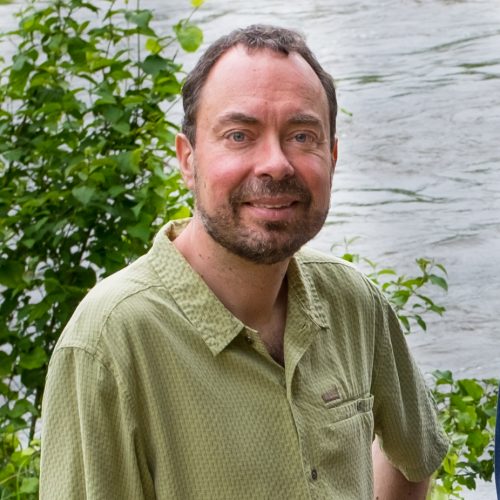
James Ellen Distinguished Professor Detlef Knappe received the Borchardt-Glysson Water Treatment Innovation Prize from University of Michigan. Knappe was recognized at the Borchardt Conference in May at the University of Michigan in Ann Arbor, where he delivered an award lecture. As part of the prize, Knappe received a cash award and reimbursement to the conference.
The prize recognizes accomplishments in the water or wastewater treatment fields that have been nationally and internationally recognized.
Knappe’s research focuses on source water protection by identifying contaminants through targeted and non-targeted analyses and on the development of treatment approaches for the remediation of regulated and unregulated contaminants.
At NC State, he led the CCEE research team that helped uncover the presence of GenX, a synthetic chemical, and other per- and polyfluoroalkyl substances (PFAS) in North Carolina’s Cape Fear River.
“Dr. Knappe is a pioneer and innovator who has significantly advanced our knowledge of emerging contaminants and has developed innovative treatment technologies to remove them from water,” said Susan Richardson, Arthur S. Williams Professor of Chemistry at the University of South Carolina. “Dr. Knappe has already had a profound impact on the safety of our nation’s drinking water.”
Thomas Speth, associate director of the U.S. Environmental Protection Agency’s Center for Environmental Solutions and Emergency Response, said he has worked with Knappe on numerous PFAS research projects ranging from the removal of PFAS from water to the management of residual streams such as spent granular activated carbon (GAC).
“Detlef has been at the forefront of understanding both the theory and practice of removing PFAS from drinking waters, showing leadership in academic, regulatory, and advocacy circles,” he said. “Detlef’s scientific knowledge and ability to communicate that knowledge is second to none.”
Erik Rosenfeldt, the national drinking water practice leader at Hazen and Sawyer, said the engineering company has collaborated with Knappe’s research group on projects that have led to hundreds of millions of dollars of critical treatment infrastructure decisions to improve protection of human health. These projects include a GAC design tool capable of optimizing parallel operation of multiple contactors to minimize carbon regeneration and optimize treatment for meeting disinfection byproducts regulation, source tracking and advanced treatment evaluation for a GenX-affected drinking water supply in Virginia, and the investigation of treatment alternatives for short-chain PFAS.
“Detlef has eagerly accepted his role in the current water industry: as a leading voice for highlighting the presence and the challenges of emerging contaminants in water resources of North Carolina and nationally, and also as a problem-solver capable of providing sound science to inform decision-making,” Rosenfeldt said.
Knappe serves as deputy director of NC State’s Center for Environmental and Human Health Effects of PFAS, a member of NC State’s Center for Human Health and the Environment, and faculty advisor for the NC Safewater Student Chapter at NC State.
“While we all believe that environmental engineers must work to protect the public welfare, when confronted with intractable problems that require navigating multiple ethical dilemmas at interfaces between science and society, we need to recognize those with the patience, moral courage and complementary technical skills that are needed to persist and succeed,” said Marc Edwards, University Distinguished Professor at Virginia Tech University. “Detlef’s research has beneficially impacted hundreds of thousands of lives in North Carolina, and by extension, millions of affected consumers around the country.”
